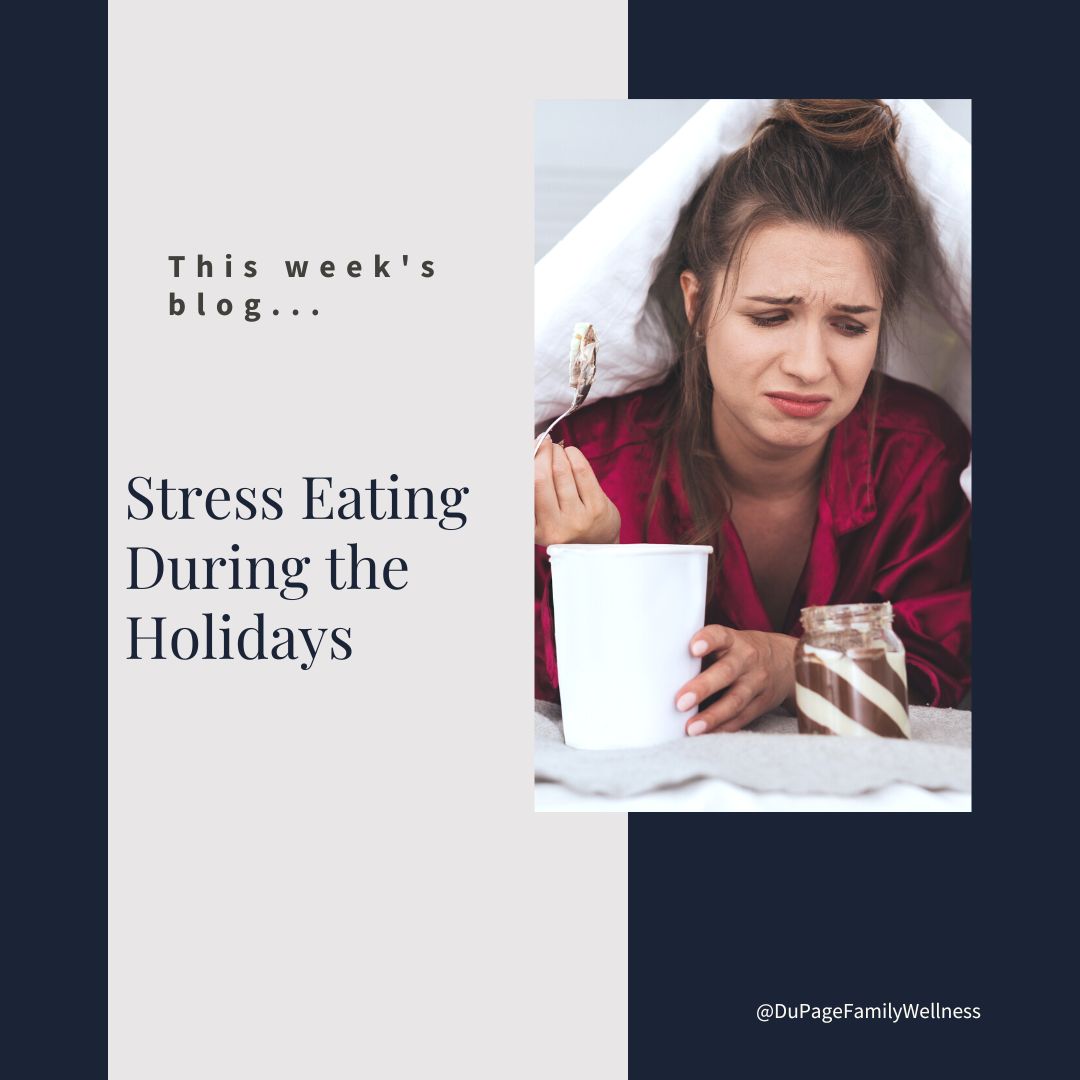 It can be tempting to reach for food when you are feeling the stress of the holidays, and with all the sweet treats around it is easier than ever to “stress eat!” Eating when you are stressed is considered emotional eating. It is an attempt to fill an emotional need rather than a physical one.
It can be tempting to reach for food when you are feeling the stress of the holidays, and with all the sweet treats around it is easier than ever to “stress eat!” Eating when you are stressed is considered emotional eating. It is an attempt to fill an emotional need rather than a physical one.
This strategy works temporarily as the treats distract you by the taste and affect the chemicals in your body. The surge of dopamine after a sweet treat brings temporary relief from the stress you are feeling, but it won’t last long.
While it may help you not to feel stressed in the moment, it doesn’t effectively deal with the underlying stressors and often leads to regret. There are many better ways to deal with stress, but first, you need to recognize when you are beginning to turn to food for relief.
Let’s take a look at emotional eating and how to handle it throughout the holiday season.
Building Awareness
Cultivating self-awareness is the first step to dealing with emotional eating. By checking in with yourself and knowing the clues, you can determine whether you are truly hungry or if you are trying to meet an emotional need.
When you go to eat, ask yourself, “How do I feel right now?”. Are you stressed, sad, lonely, angry, or bored? If you are experiencing a difficult emotion, ask yourself if you are really hungry or if you are trying to meet an emotional need.
Sometimes it can be hard to tell, but Mayo Clinic has identified some clues you can look for to determine if you are really hungry. For instance,
- physical hunger generally comes on gradually after a period of not eating, while emotional hunger can come on suddenly even if you have eaten recently.
- physical hunger is felt in the stomach, while emotional hunger is felt in the mind.
- physical hunger often builds gradually and there is patience felt in meeting that need, while emotional hunger tends to demand an immediate response.
- emotional hunger often feels like it can only be satisfied with a specific type of food, while physical hunger is able to be satisfied with a variety of options.
- emotional eating often makes you feel ashamed, while physical hunger just ends up leaving you satisfied.
An Intentional Choice
Once you know what kind of hunger you are dealing with, you can intentionally choose a response. You may still choose to eat the treat, and if you do be sure to enjoy every bite because you have made that decision consciously. If you decide to skip the treat for now, here are some things that can help you stick to your choice in the moment.
- Distract yourself for a time (watch a show, read a book, etc.)
- Remove yourself from the situation (go for a walk, take a drive, leave the room, etc.)
- Reach out to a friend (a phone call, text message, etc.)
- Lean into the difficult emotion (let it wash over you, knowing that it is temporary.)
- Comfort yourself through self-care (journaling, doing art, etc.)
- Rest or take a nap if you are able to when you are tired.
- Exercise (even gentle movement can be beneficial.)
- Practice, meditation, mindfulness, or self-compassion exercises.
I want you to enjoy the season and this will likely include some foods you might not otherwise eat. The key is to make those choices intentionally so you can truly enjoy them when you do, rather than eating them in a way that you may regret later.
Dr. Jamie

